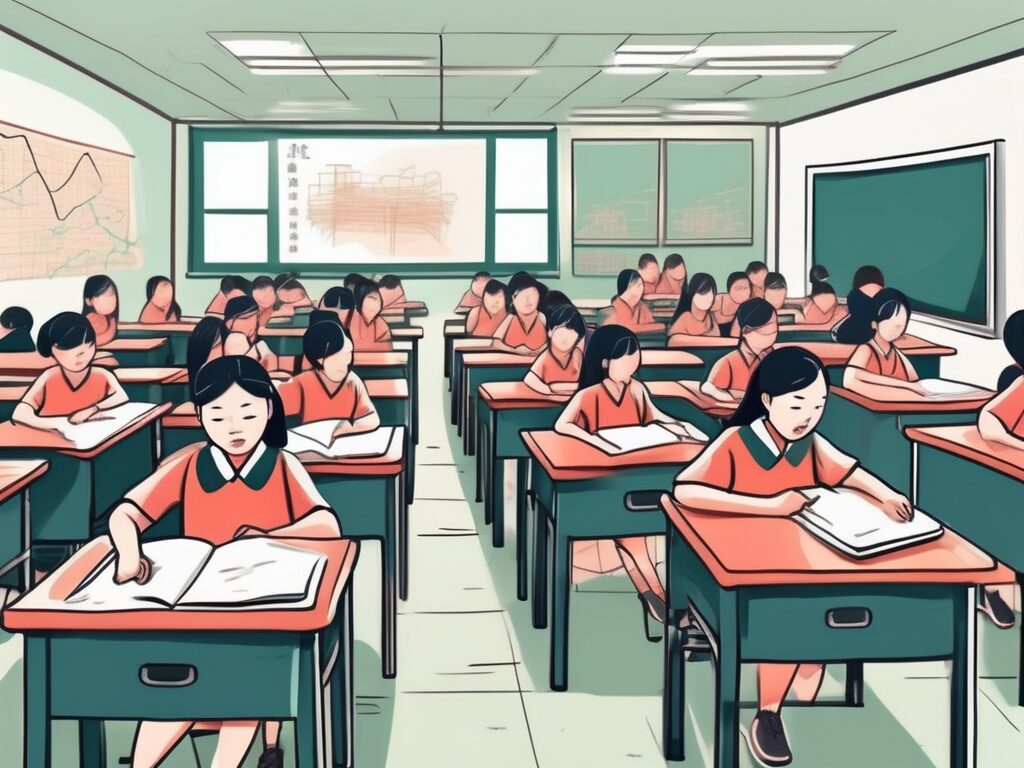The Chinese education system, with its unique blend of traditional and modern teaching methods, presents a myriad of opportunities and challenges for International Postgraduate Certificate in Education (IPGCE) teachers. As an IPGCE teacher, understanding these issues can help you navigate the system and provide the best possible education for your students. In this comprehensive guide, we will delve into six key problems that IPGCE teachers often encounter in China.
1. High Pressure and Competition
Pressure on Students
The Chinese education system is notoriously competitive. From a young age, students are under immense pressure to perform well in exams, with their results often determining their future prospects. This high-stakes environment can lead to stress and anxiety among students, which IPGCE teachers must be prepared to manage.
Pressure on Teachers
Similarly, teachers also face significant pressure. They are expected to ensure their students achieve high exam scores, and their performance is often evaluated based on these results. This can create a stressful working environment, where the focus is on rote learning rather than fostering creativity and critical thinking.
2. Rote Learning
Emphasis on Memorisation
Rote learning, where students memorise information rather than understanding it, is a common teaching method in China. While this approach can be effective for certain subjects, it can stifle creativity and limit students’ ability to think critically and solve problems – skills that are increasingly important in the modern world.
Impact on Teaching Methods
For IPGCE teachers, this emphasis on memorisation can be challenging. It may require adapting teaching methods to fit within this framework, while also trying to incorporate more interactive and engaging learning activities.
3. Language Barriers
English Proficiency
While English is taught in many Chinese schools, proficiency levels can vary significantly. This can pose a challenge for IPGCE teachers, who may need to adapt their teaching methods to accommodate varying levels of English comprehension among their students.
Chinese Language Skills
On the flip side, a lack of proficiency in Mandarin can also be a challenge for IPGCE teachers. While it’s not a requirement for the job, having some knowledge of the language can certainly make life easier, both inside and outside the classroom.
4. Cultural Differences
Understanding Chinese Culture
China has a rich and complex culture, which can be both fascinating and challenging for foreigners to navigate. Understanding cultural norms and expectations is crucial for IPGCE teachers, as it can impact classroom management and student-teacher relationships.
Adapting Teaching Styles
Furthermore, teaching styles that work well in Western countries may not be as effective in China. IPGCE teachers may need to adapt their approach to suit the local culture, which can be a rewarding but challenging process.
5. Large Class Sizes
Managing Large Classes
Chinese classrooms often have large class sizes, sometimes with over 50 students. This can make classroom management more difficult, particularly when it comes to ensuring each student gets the attention they need.
Individual Attention
Large class sizes can also make it harder to provide individual attention to students, which can be particularly challenging for subjects that require one-on-one instruction or feedback.
6. Limited Resources
Access to Teaching Resources
While some schools in China are well-resourced, others may lack the teaching materials and resources that IPGCE teachers are accustomed to. This can require creativity and flexibility in lesson planning and delivery.
Technology in the Classroom
Similarly, access to technology can vary greatly. While some schools have state-of-the-art facilities, others may have limited access to computers and other technology. This can impact the types of lessons and activities that can be conducted in the classroom.
In conclusion, while the Chinese education system presents unique challenges for IPGCE teachers, it also offers the opportunity to grow and learn as an educator. By understanding these issues and being prepared to adapt and be flexible, IPGCE teachers can thrive in this dynamic and rewarding environment.
Transform Your Teaching Career with IPGCE
Confronted with the complexities of China’s education system, IPGCE teachers are uniquely positioned to make a significant impact. If you’re ready to enhance your qualifications, connect with a global network of educators, and gain a deeper understanding of international curricula, the International Postgraduate Certificate in Education (iPGCE) is your gateway to success. Join the UK’s #1 Teacher Training Course and experience a surge in interview callbacks, promotion rates, and salary potential. Embrace the opportunity for professional growth and overcome the barriers to career progression. Join the iPGCE program today and take the first step towards a thriving international teaching career.

